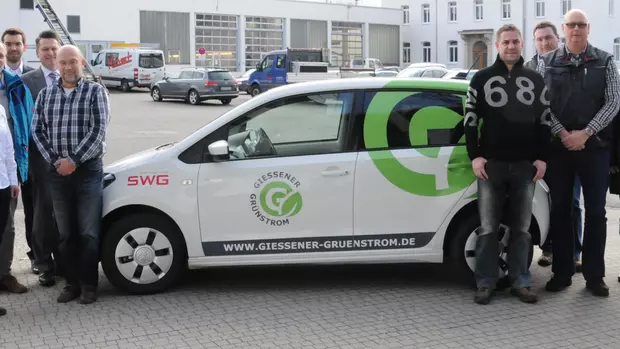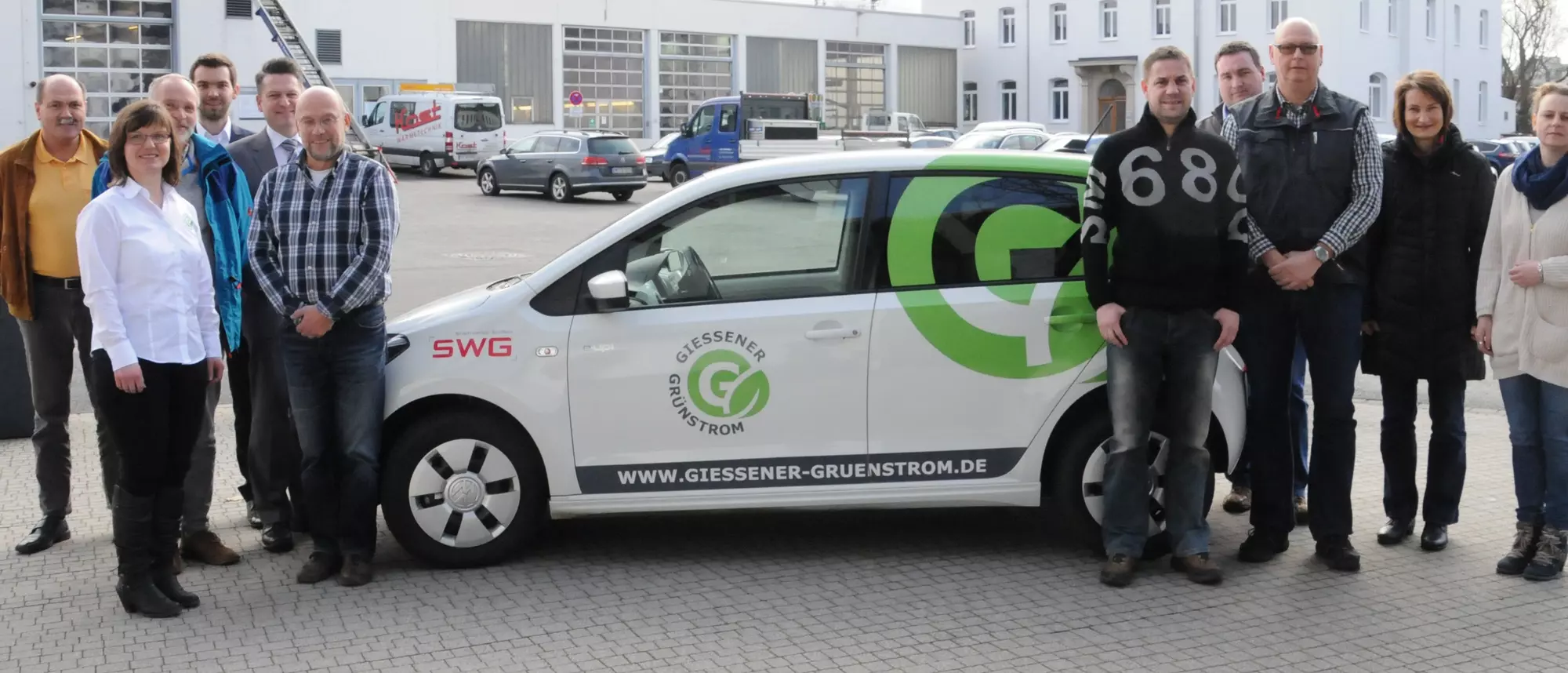
Numerous current pilot projects in Germany are intended to help test solutions for the climate-friendly mobility of the future. Cities and municipalities play a key role here - as pioneers and role models. Stadtwerke Gießen provided information on current developments in the field of electromobility at this year's Municipal Environmental Meeting last Thursday.
By 2020, around one million electric vehicles are expected to be on Germany's roads. The German government is sticking to this ambitious target despite great scepticism from experts. The legislator sees local authorities in particular in the role of pioneers - because they act as role models and because electromobility can fully utilise its strengths in local road traffic.
Michael Rösner, Head of Sales for Private and Commercial Customers at Stadtwerke Gießen (SWG), is also convinced of this. "As the number of cars continues to rise, it is becoming increasingly important to think about sustainable mobility. In addition to natural gas vehicles, electric vehicles help to reduce pollutant and particulate emissions - provided that climate-friendly electricity is used for charging. They also significantly reduce noise pollution."
At this year's municipal environmental meeting on 5 March, SWG provided information on the other advantages of electric vehicles, the models currently on offer from manufacturers and what future technology could achieve. The participants: eleven environmental consultants, energy officers and employees from towns and municipalities in the region. In a two-hour presentation, Marius Buchmann from the Fraunhofer Institute IFAM in Bremen brought them up to date on the latest developments in e-mobility.
Modern concepts - new approaches
The expert began by discussing current national and international market developments, highlighting current trends and explaining innovative drive technologies such as the wheel hub motor. Later in the morning, Marius Buchmann then focussed on battery concepts and the question of a suitable charging infrastructure for electric vehicles. What the participants of the Municipal Environmental Meeting first learnt in theory, they were then able to test for themselves in practice. After the presentation and a discussion round, Martin Jahn, Technical Services at SWG, presented the recently inaugurated charging station in the visitor car park, directly opposite the SWG headquarters at Lahnstraße 31: "From now on, two vehicles can charge simultaneously here - using climate-friendly, nuclear-free green electricity from Giessen. Simply pick up the corresponding fuel card at the head office, plug in the charging cable and you're ready to go." Stadtwerke Gießen provides the electricity free of charge. SWG customers also receive a freely available fuel card; non-customers only pay a one-off fee of 25 euros for the card or have to leave a deposit at the head office. Afterwards, the participants were able to test the driving characteristics of an electric vehicle in practice during a test drive on the factory premises.

